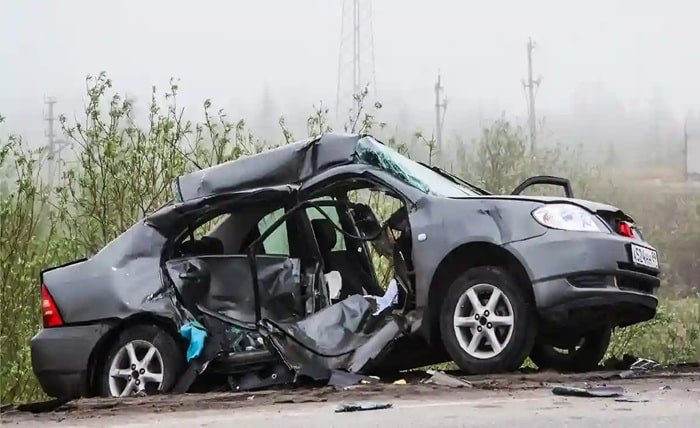When Repairs Aren’t Worth It: Total Loss and Replacement Vehicle Options

After a serious car accident, one of the first questions drivers face is whether their vehicle can—and should—be repaired. While some damage is cosmetic and easily fixed, other crashes result in damage so extensive that the cost of repairs outweighs the value of the vehicle. In these cases, insurers often declare the car a “total loss,” meaning it’s no longer economically feasible to fix. But for many drivers, the total loss process feels confusing and, at times, unfair.
Understanding how total loss decisions are made and what your replacement options are can help you avoid being shortchanged by your insurance company. It can also empower you to negotiate a better settlement or challenge a valuation that doesn’t reflect your vehicle’s true worth. When insurance companies fail to treat you fairly, a firm like Shipman & Wright LLP can help you assert your rights and explore legal options for full compensation.
What Does “Total Loss” Really Mean?
A vehicle is considered a total loss when the cost to repair it exceeds a certain percentage of its pre-accident market value. That threshold varies by state and insurer, but it typically falls between 70% and 80%. In other words, if your car was worth $10,000 before the crash and repairs would cost $8,000, it’s likely to be totaled.
It’s important to note that total loss doesn’t mean the vehicle is completely destroyed. Even cars that appear drivable may be declared total losses due to the high cost of parts, labor, or safety concerns. Understanding this classification helps you prepare for the next steps in the replacement process.
How Insurance Companies Calculate Vehicle Value
Insurance companies use several tools to determine the actual cash value (ACV) of your car—what it was worth before the crash. This may include databases of recent sales, depreciation calculators, and regional market trends. Unfortunately, their valuation may not reflect the true condition or unique features of your car.
If you recently invested in upgrades, new tires, or major maintenance, those factors should be included in the valuation. You have the right to provide documentation and challenge lowball offers. A fair ACV should reflect what it would cost to replace your vehicle in your specific market—not a generalized estimate.
When You Still Owe on a Totaled Vehicle
One of the most stressful parts of a total loss situation is when you owe more on the vehicle than what the insurance company is willing to pay. This often happens with new cars that depreciate quickly or vehicles financed with long loan terms and small down payments.
In these cases, gap insurance can be a lifesaver. It covers the difference between your loan balance and the insurance payout. Without it, you may be left paying out of pocket for a vehicle you no longer own. If you’re unsure of your coverage or feel misled by a lender, legal guidance can help clarify your financial obligations and options.
Keeping the Car vs. Accepting the Payout
Sometimes, a totaled vehicle still has life left in it—particularly if you’re handy with repairs or have sentimental attachment. Insurers may allow you to keep the vehicle with a “salvage title” and deduct its salvage value from your payout. However, this comes with risks, including limited insurability and reduced resale value.
Before deciding to keep the car, get a realistic estimate of repair costs and confirm that the vehicle can be registered and insured post-repair. In most cases, accepting the payout and starting fresh is the safer, more practical option—especially when safety systems have been compromised.
Exploring Replacement Options After a Total Loss
After your vehicle is declared a total loss and the insurance payout is settled, your focus shifts to finding a replacement. While the compensation is meant to reflect your car’s pre-accident value, current market conditions can complicate the search. A strategic approach can help you make a sound decision without feeling rushed.
- Insurance payouts are based on the car’s pre-loss value, including age, mileage, and condition.
- Rising car prices or low inventory may make it difficult to find a comparable replacement within your settlement amount.
- Expand your search radius to include nearby cities or regions for more inventory options.
- Certified pre-owned vehicles can offer quality assurance and warranties, making them worth considering.
- Negotiate with dealers who understand insurance claim timelines, as they may offer flexibility or guidance.
- Review your policy for rental car reimbursement coverage, which can give you breathing room during the search.
- Actively managing the replacement process helps you avoid pressure-based decisions and find a vehicle that meets your needs.
Disputing a Total Loss Decision
Sometimes, it’s not the valuation that’s the problem—it’s the decision itself. You may believe the car is repairable, or the insurer may have used outdated data to reach a total loss conclusion. If you disagree with the assessment, you have the right to request a second opinion or hire an independent appraiser.
Documentation is key. Provide recent maintenance records, proof of upgrades, and even market listings for similar vehicles. If the insurer refuses to reconsider, a legal advocate can help negotiate a revised payout or pursue compensation through alternative channels.
Salvage Titles and What They Mean for Resale
A car with a salvage title has been deemed a total loss and then repaired for resale. While buying back your own totaled car or purchasing a salvage vehicle from another party may seem like a budget-friendly move, these cars come with risks. They’re harder to insure, more difficult to finance, and often less reliable.
If you plan to resell a salvage vehicle, be transparent and prepared for reduced market value. Buyers are cautious, and even after thorough repairs, the stigma of a salvage title can be hard to shake. Think carefully before going this route, especially if safety or long-term reliability is a concern.
The Legal Side of Lowball Offers and Delays
Not all insurers act in good faith. If your claim is being delayed, undervalued, or ignored, you may be dealing with bad faith insurance practices. These tactics can include offering far less than your car’s true value, stalling negotiations, or refusing to release funds after agreeing to a settlement.
In such cases, documenting every communication and consulting with an attorney is your best defense. A law firm familiar with total loss claims can hold insurers accountable and ensure you receive the compensation you’re entitled to. Don’t accept less than your vehicle—and peace of mind—is worth.




